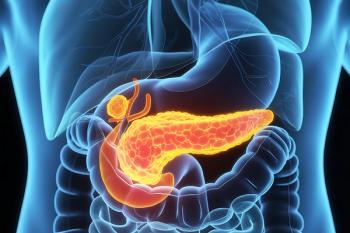
Byetta
First-in-class approved for type 2 diabetes
AMYLIN First-in-class approved for type 2 diabetes
Exenatide mimics the enhancement of glucose-dependent insulin secretion and several of the other antihyperglycemic actions of incretins. Exenatide was approved on April 28, 2005, as adjunctive therapy to improve glycemic control in patients with type 2 diabetes mellitus who are taking metformin, a sulfonylurea, or a combination of metformin and a sulfonylurea but have not achieved adequate glycemic control.
Efficacy. A total of 1,446 patients were randomized in three 30-week, double-blind, placebo-controlled trials to evaluate the efficacy of exenatide. Patients received exen-atide 5 mcg bid, exenatide 10 mcg bid, or placebo bid, in addition to their existing oral antidiabetic agent, before their morning and evening meals. The primary efficacy end point in each study was mean change from baseline in HbA1c (%) at 30 weeks. The exenatide 10-mcg group demonstrated changes of –0.8, –0.9, and –0.8 (P≤0001) in the 3 studies, compared with changes of –0.4, –0.5, and –0.6 (P≤05, .05, and .0001, respectively) for the exenatide 5-mg group and changes of +0.1, +0.1, and +0.2 for the placebo group.
Dosing. Exenatide therapy should be initiated at a 5 mcg/dose administered twice daily at any time within the 60-minute periods before the morning and evening meals and should not be administered after a meal. The dose of exenatide can be increased to 10 mcg twice daily after 1 month of therapy based on clinical response. Each exenatide dose should be administered as a SC injection in the thigh, abdomen, or upper arm. When exenatide is added to sulfonylurea therapy, a reduction in the sulfonylurea dose should be considered to reduce the risk of hypoglycemia.
Newsletter
Get the latest industry news, event updates, and more from Managed healthcare Executive.























